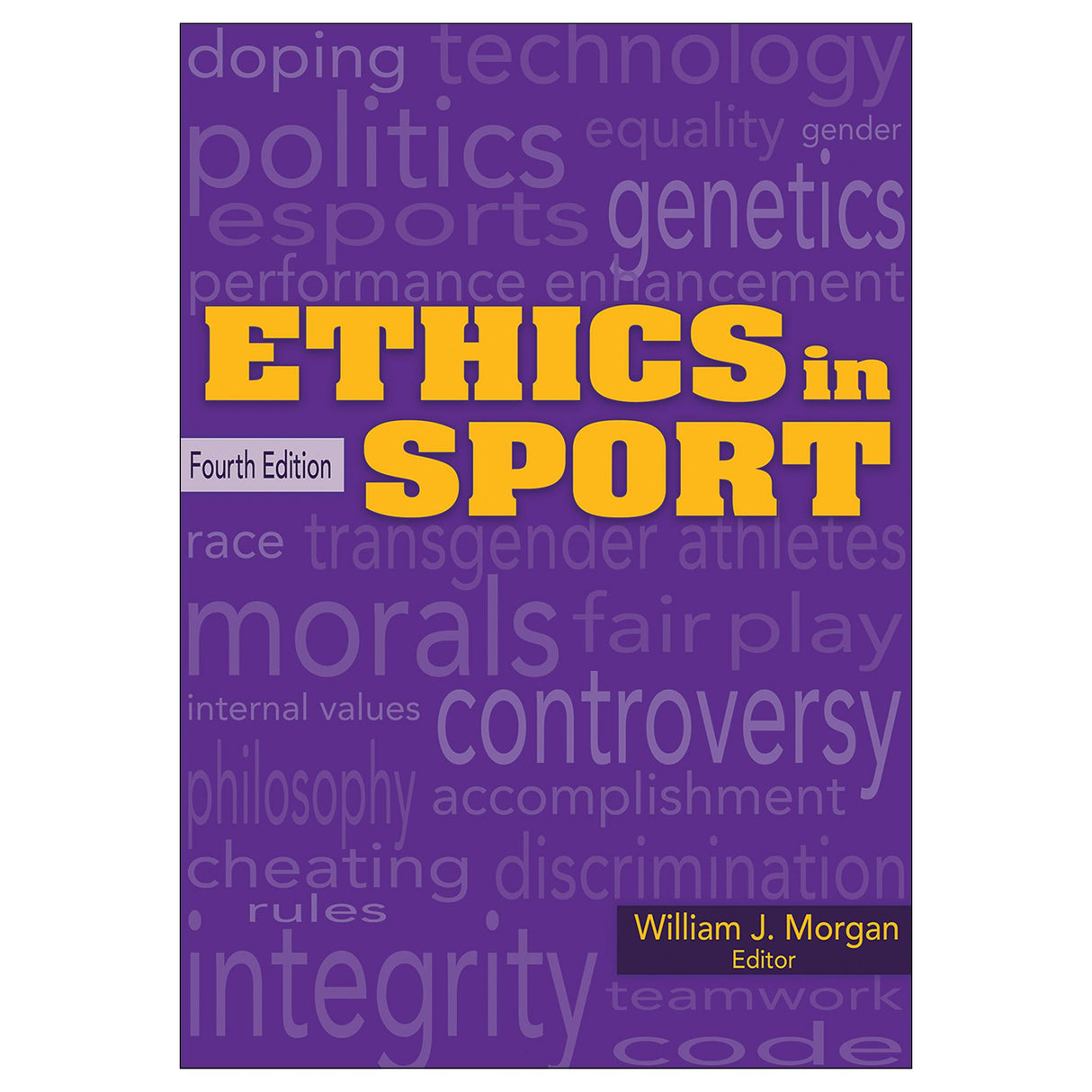Ethics in Sport 4th Edition epub
Author: William J J. Morgan
$101.95 CAD
Access Duration: 10 Years
The fourth edition of Ethics in Sport contains nine new essays that address the latest topics in the world of sport that have provoked widespread controversy. These issues concern, among other things, whether esports (electronic sports) are bona fide sports, whether gamesmanship is acceptable in sports competition, and whether transgender athletes who transition from male to female should be allowed to compete in sports reserved for women and under what conditions.
Each part begins with an introduction that encapsulates relevant ethical concepts and contextualizes the issues in the upcoming essays. Throughout the text, discussion questions prompt students to reflect on the information presented and to consider how ethical issues affect our society and their own lives. An instructor guide offers tools to facilitate these discussions as well as over 50 assignment recommendations.
With a wealth of new essays, Ethics in Sport, Fourth Edition, offers philosophical insights from the most influential minds in the study of ethics and keeps readers abreast of current issues.
Audience
Textbook for upper-level courses in sport ethics and ethics in sport and philosophy. Reference for sport studies scholars and for researchers, ethicists, sociologists, and philosophers of sport.Part I: The Nature of Sport
Chapter 1. The Elements of Sport
Bernard Suits
Chapter 2. Thoughts on the Nature of Sport (and the Philosophy of Sport)
Graham McFee
Chapter 3. E-Sports Are Not Sports
J. Parry
Chapter 4. Internalism and Internal Values in Sport
Robert L. Simon
Chapter 5. Broad Internalism and the Moral Foundations of Sport
J.S. Russell
Chapter 6. The Normativity of Sport: A Historicist Take on Broad Internalism
William J. Morgan
Part II: Competition and Fair Play: Considerations of Winning, Cheating, and Gamesmanship
Chapter 7. Formalism Reconsidered
Paul Gaffney
Chapter 8. Competition as Cooperation
C. Thi Nguyen
Chapter 9. Sportsmanship as a Moral Category
James W. Keating
Chapter 10. Sportsmanship
Randolph M. Feezell
Chapter 11. On Winning and Athletic Superiority
Nicholas Dixon
Chapter 12. Success
J. J. Valberg
Chapter 13. Is There a Normatively Distinctive Conception of Cheating in Sport (or Anywhere Else)?
J. S. Russell
Chapter 14. Gamesmanship
Leslie A. Howe
Chapter 15. Gamesmanship as Strategic Excellence
Josh Leota & Michael-John Turp
Chapter 16. Moral Victories
Paul Gaffney
Chapter 17. What Counts as Part of a Game? A Look at Skills
Cesar R. Torres
Chapter 18. Intentional Rule Violations—One More Time
Warren P. Fraleigh
Chapter 19. The Ethics of Strategic Fouling: A Reply to Fraleigh
Robert L. Simon
Part III: Doping and Genetic Enhancement in Sport
Chapter 20. Cops and Robbers? The Roots of Anti-Doping Policies in Olympic Sport
Ian Ritchie
Chapter 21. Good Competition and Drug-Enhanced Performance
Robert L. Simon
Chapter 22. Paternalism, Drugs, and the Nature of Sports
W.M. Brown
Chapter 23. Ethics of Performance Enhancement in Sport: Drugs and Gene Doping
Bennett Foddy and Julian Savulescu
Chapter 24. The Case for Perfection
W. Miller Brown
Part IV: Gender and Sexual Equality in Sport
Chapter 25. Sex Equality in Sports
Jane English
Chapter 26. The Genetic Design of a New Amazon
Claudio Tamburrini and Torbjörn Tännsjö
Chapter 27. What Is Gender Equality in Sports?
Simona Giordano and John Harris
Chapter 28. Safety, Fairness, and Inclusion: Transgender Athletes and the Essence of Rugby
Jon Pike
Chapter 29. Transgender Women in Sport
Andria Bianchi
Part V: Select Issues in the Social Ethics of Sport: Race, Spectatorship, and Politics
Chapter 30. On the Particular Racism of Native American Mascots
Erin C. Tarver
Chapter 31. Is Our Admiration for Sports Heroes Fascistoid?
Torbjörn Tännsjö
Chapter 32. What’s Wrong With Admiring Athletes and Other People?
Ingmar Persson
Chapter 33. The Ethics of Supporting Sports Teams
Nicholas Dixon
Performance-enhancing drugs, coercion, and the harm principle
Transgender athletes and the natural lottery
All ancillaries are free to adopting instructors through HKPropel.
Instructor guide. Includes a sample syllabus with a course description, course objectives, course requirements, and a grading scale and course plan. Also included are class assignments for each part of the text and suggested answers to end-of-chapter discussion questions.





